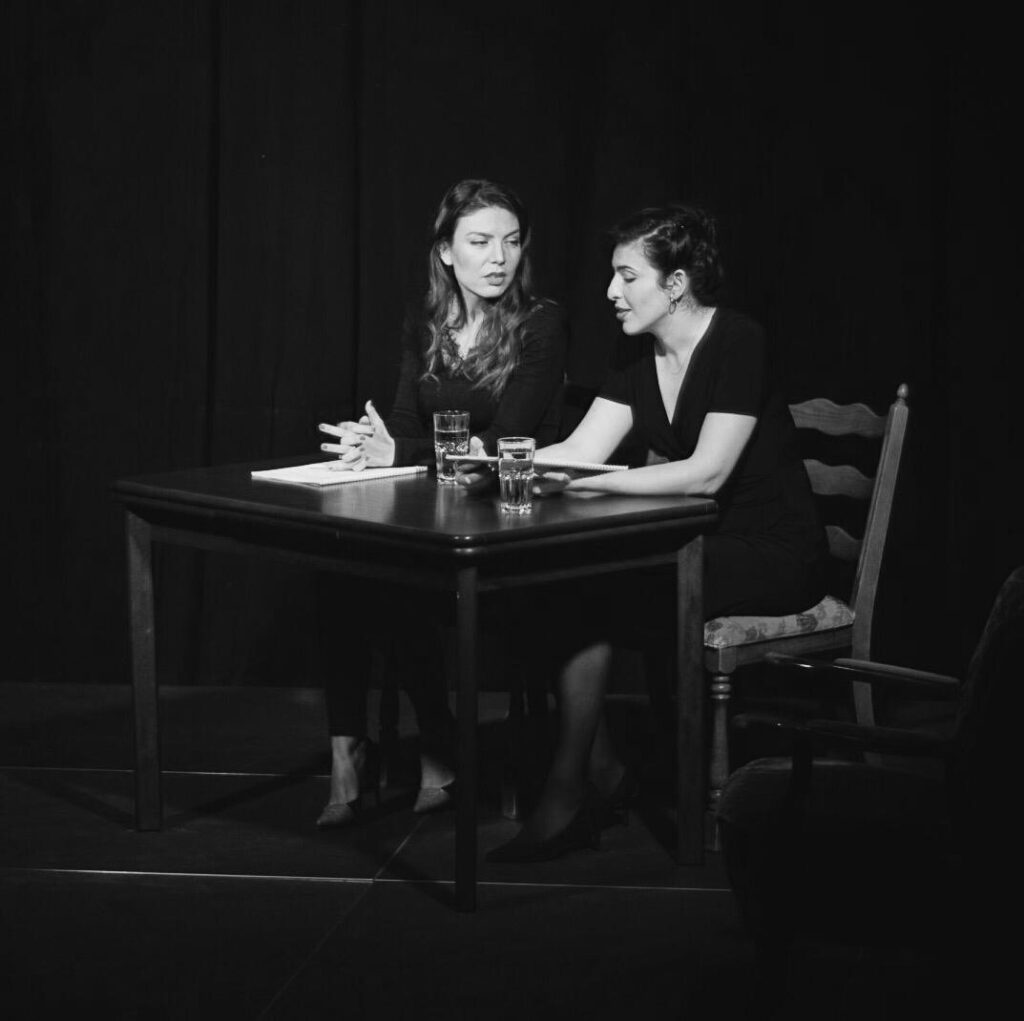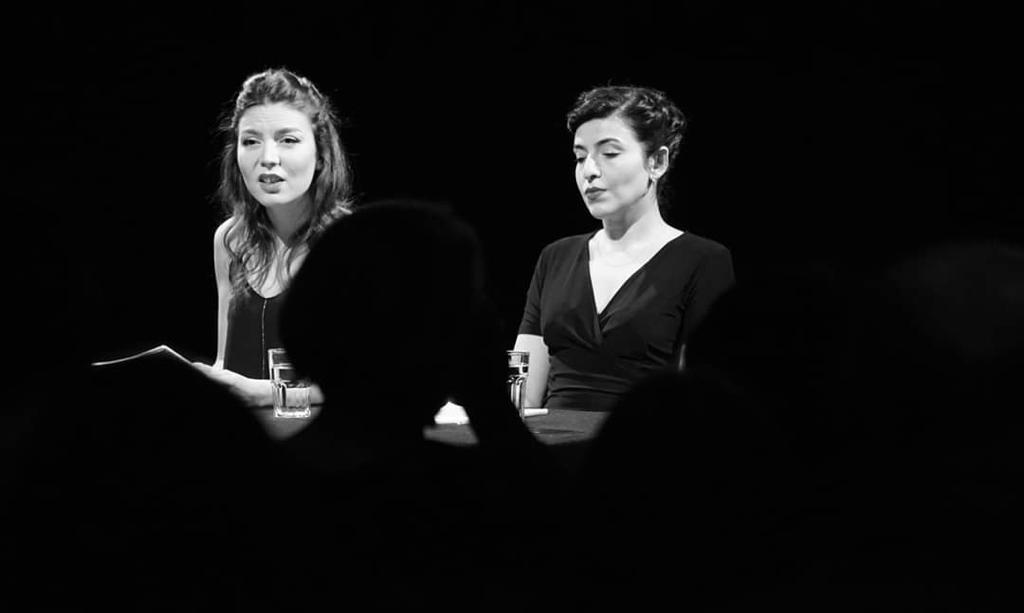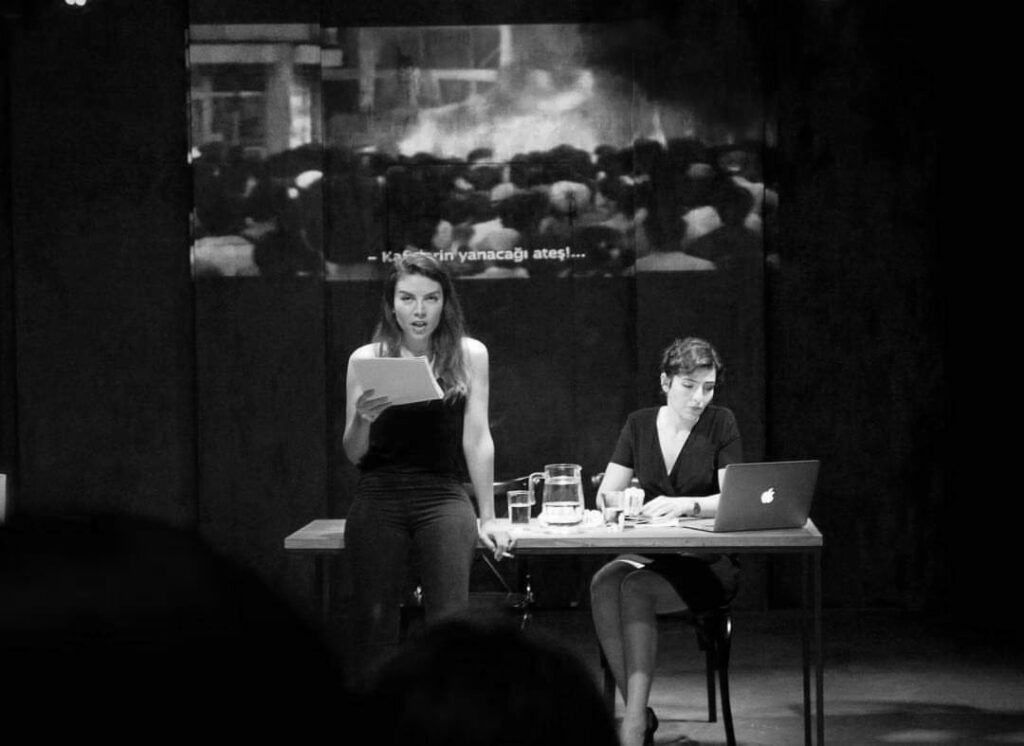“It touched our wounds of discrimination, exclusion, expatriation, acceptance, loneliness. The whole audience cried together and experienced catharsis. Perhaps this feeling created a sense of togetherness that I had never experienced before. I think it was the first time I really experienced exactly how catharsis works.”
Şule Ateş
“I watched it for the second time, I can watch it many times. It should be watched at regular intervals to remember that it is not the distance between people but the meaningless arrogance that drives us away from each other. You have created a wonderful piece that has made me cry and opened my eyes to the fact that we should not be asking “How can this be?” but “How could we not see this?” and I want this piece to reach everyone I know.”
Hatice Aktaş
“I’m Cagla. I wrote a story. The main reason for writing this story was the play Türkland. I I came to watch my friend Ilgıt and found myself in the play. The answer to the questions I had been chasing for years was hidden in the definition of ‘suitcase boy’. I cried a lot that day at the play and that crying felt like healing. After the play that day, I always thought the same thing; how could a person tell about their wounds so bravely?
Then I saw the project titled ‘Open Call: I immediately rolled up my sleeves and wrote a short story.
Dear Dilşad, thank you very, very much. For opening your heart so bravely. Thanks to you, I have entered the most indescribable path of my life.”
Çağla Öztürk
“As a person living in Australia who has not experienced racism and who migrated at a later stage, I watched it with sadness, I was very touched.”
Nazlı Sönmezocak Çalşimşek

“When you came to Cologne, I admired the way you told your story on stage, your openness, your naturalness. I was so impressed. I found myself in many points. And realized, that all those issues that I didn’t think much about have hurted me too. We always thought that all this was normal. You know, when other friends were Turkish and shared the same fate, I never thought about how this fate affected our personality.
How tired I was of trying to like myself. Of always feeling like a loser (you don’t know what Christmas is, you don’t know their children’s songs, you don’t get eggs at Easter, etc.). Of not being able to express myself at that age, of losing trust in justice. Of the fact, that being different is punished as it were a crime.
(…) You know Sezen’s song: “I have to raise this girl again. I am aware of that…”
That’s exactly what we should do. We should take that girl by the hand and show her the wonderful life she has today. We should praise her a lot. For being so strong. And And we must not neglect to spoil her like a child.”
Sevgi Karapınar
“I sat frozen in my seat and watched it breathlessly.”
Yasemin Aydın
“Having a discussion and asking questions at the end of the show is very valuable and necessary as it encourages the people to think, question, respect different opinions and evaluate them in the light of reason.”
Yaren Topaler

“It’s amazing how you were able to describe the feeling of expatriation, its complex emotions and psychology in such a short time in such a beautiful way. Thank you so much for making us realize by watching this work, that we are not the only ones who experience all those things that we don’t want to seem weak by telling each other. I can’t wait to read your novel.”
Okan Bayrak
“Although my mother and aunts in the audience had never experienced expatriation, they were moved and cried as if they were listening to their own stories.”
İrem Dilaver
“The play was a kind of therapy that brought together everyone who does or does not like theater.”
Senem Fırtına

“Belonging is a difficult subject. To tell it by colliding those who belong with those who don’t, to weave an incredible story with a story that is thought to be very familiar… I liked that so much that I wished I could understand German so I could watch it that way again…”
Sedef Sıcakkan
“As someone who was born and raised in Turkey and who went to Germany for an internship and was very critical of the behavior and the way of thinking of the Turks there, I changed my perspective on them.”
Tuvana Ceylan
“I worked for 50 years as a psychologist and am now retired. While watching it, I wished I had encountered this text at the beginning of my professional life.”
An audience member in Ludwigshafen am Main
